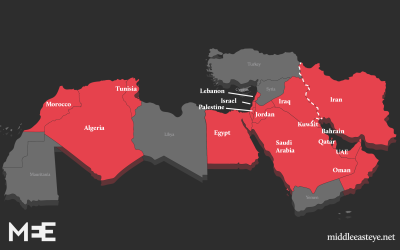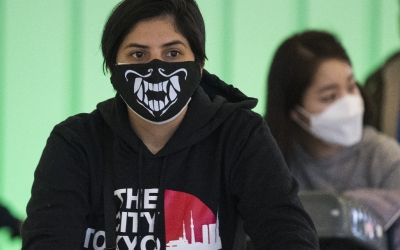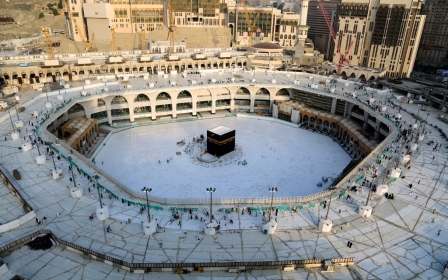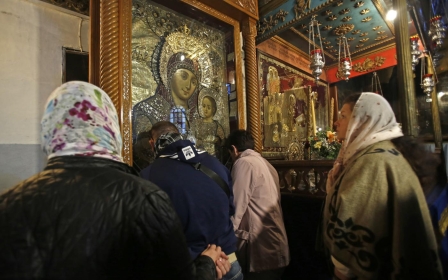Coronavirus: Egypt confirms 12 new cases on cruise ship in Luxor
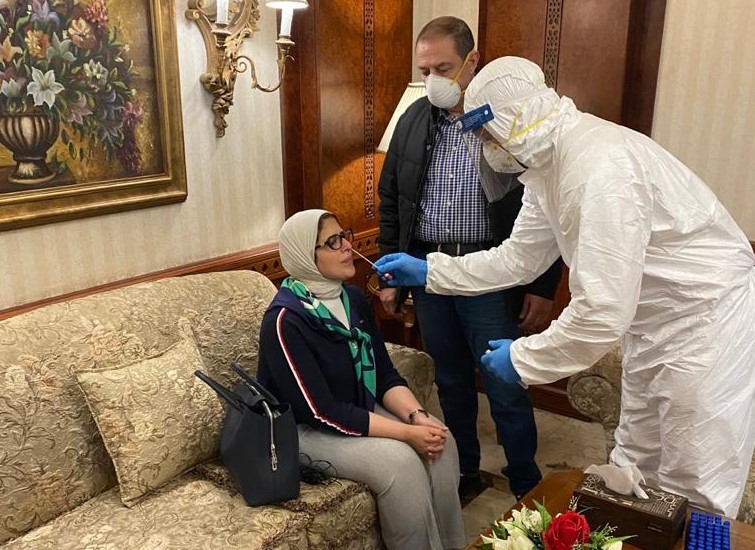
Egypt announced on Friday that 12 new cases of the novel coronavirus were detected on a cruise ship in the southern tourist city of Luxor.
The 12 people who have tested positive for the virus are Egyptians working on the cruise from Aswan to Luxor, according to a joint statement by the Egyptian Ministry of Health and the World Health Organisation.
They have not displayed any visible symptoms of the virus, also known as COVID-19, the statement said.
The source of the infections is likely to be a Taiwanese-American tourist recently diagnosed upon her return from Egypt to the United States, the spokesperson of the health ministry Khaled Megahed said.
The statement contradicts an earlier statement by the Minister of Health Hala Zayed, published on Thursday, saying that all those who were in contact with the tourist on the cruise ship have tested negative after 14-day quarantine.
New MEE newsletter: Jerusalem Dispatch
Sign up to get the latest insights and analysis on Israel-Palestine, alongside Turkey Unpacked and other MEE newsletters
The earlier statement said that Taiwanese authorities informed Egypt on 1 March that the person who tested positive for the virus “had a history of travel to the United Arab Emirates and Egypt between 29 January and 1 February”.
The case was then linked to two other cases detected in the US, with a history of travel to Egypt between 9 and 20 February, as all three had boarded the same Nile cruise ship during their trip.
According to Megahed, authorities have inspected all cases who might have been in contact with the Taiwanese woman on the ship. After 14 days of quarantine, no Covid-19 symptoms were reported, he added.
On the 14th day, a PCR test showed that 12 Egyptian workers on the ship have been infected with coronavirus, and all of them have been transferred to a specialised hospital.
Other cases linked to the 12 people have been put in quarantine for a further 14 days.
WHO epidemiologist Maria van Kerkhove said on Thursday the organisation did not believe that transmission of the disease by people who showed no symptoms was a major factor fuelling its spread.
"We know that that is possible but we do not believe that is a major driver of transmission," she told a Geneva news briefing.
"If we look at the actual epidemics and how these epidemics are unfolding, if they were a major driver of transmission it would have caused much larger numbers of cases."
Egyptian minister of health in quarantine
Egypt announced the first case of an Egyptian national infected with the virus on Thursday.
The patient is a 44-year-old man who arrived from Serbia after a 12-hour transit via France.
Two other cases reported by Egypt earlier were foreign nationals who showed minor symptoms, one of them fully recovered, according to the health ministry.
The patient who recovered, a Chinese national, was the first case to be recorded in the African continent.
The government did not clarify who the two foreigners were nor how they were infected.
The government has been criticised for a lack of transparency regarding at least nine cases of people who had travelled from Egypt and have been diagnosed in Canada, France and the United States.
The minister of health, however, has denied any cover-up on cases and insisted that her government is prepared to deal with an outbreak.
Zayed herself is currently in a 14-day quarantine after returning from a trip to China on Friday.
The minister had travelled to China on Sunday to “show solidarity” with the Asian country, where the virus originated.
Middle East Eye delivers independent and unrivalled coverage and analysis of the Middle East, North Africa and beyond. To learn more about republishing this content and the associated fees, please fill out this form. More about MEE can be found here.


